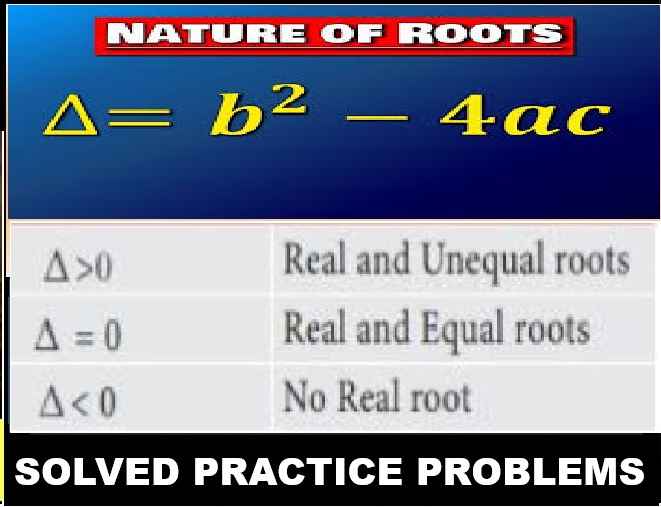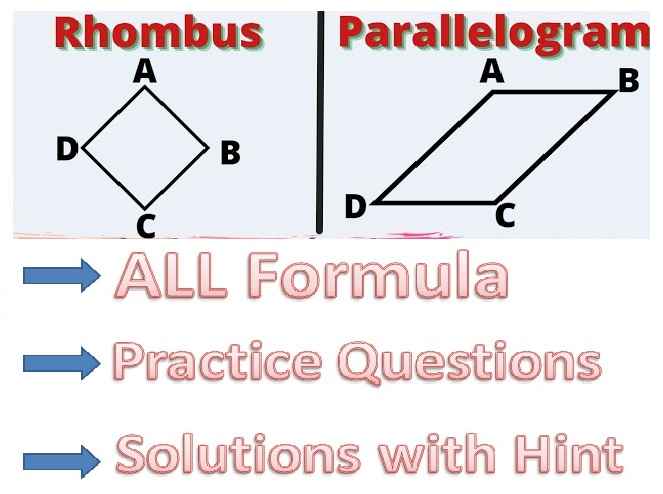All Summer in a Day Treasure Trove Short Stories Workbook ICSE English Solutions . Exercise Question for cracking the next upcoming Sem-2 exam of council. Visit official website CISCE for detail information about ICSE Board Class-10 English
Short Stories All Summer in a Day Treasure Trove Workbook ICSE English Solutions

| Board | ICSE |
| Class | 10th (X) |
| Subject | English (Treasure Trove) |
| Chapter | All Summer in a Day |
| Syllabus | on bifurcated syllabus (after reduction) |
| Session | 2021-22 |
| Bifurcated | Sem-2 |
| Topic | Descriptive / Subjective Question for sec-B |
ICSE English Workbook Solutions Short Stories All Summer in a Day Treasure Trove
Question :- 1 Read the extract given below and answer the questions that follow.
“Do the scientists really know? Will it happen today, will it ?”
“Look, look; see for yourself !”The children pressed to each other like so many roses, so many weeds, intermixed, peering out for a look at the hidden sun. It rained. It had been raining for seven years; thousands upon thousands of days compounded and filled from one end to the other with rain, with the drum and gush of water, with the sweet crystal fall of showers and the concussion of storms so heavy they were tidal waves come over the islands. A thousand forests had been crushed under the rain and grown up a thousand times to be crushed again. And this was the way life was forever on the planet Venus, and this was the schoolroom of the children of the rocket men and women who had come to a raining world to set up civilization and live out their lives.
Q :- 1.Which is the place under discussion?
Ans :- The place under discussion is the planet Venus and the weather there.
Q :- 2.What is the weather like on Venus? How long has it been like this?
Ans :- The weather is dark and depressing as there is no sun for the past seven years. It had been raining for seven years; thousands upon thousands of days compounded and filled from one end to the other with rain.
Q :- 3. What is supposed to happen on this particular day?
Ans :- The scientists had predicted that on that particular day the sun would shine for a short while.
Q :- 4. Describe the rain and its effect on life on Venus.
Ans :- The sun remains hidden for seven years on Venus and it rains continuously for those seven years, thousands upon thousands of days compounded and filled from one end to the other with rain, with the drum and gush of water, with the sweet crystal fall of showers and the concussion of storms so heavy they were tidal waves come over the islands. A thousand forests had been crushed under the rain and grown up a thousand times to be crushed again.
Q :- 5. Why had the rocket men and women come to Venus?
Ans :- The rocket men and women had come to the raining world of Venus to set up a civilization and live out their lives.
Question :- 2 Read the extract given below and answer the questions that follow.
Margot stood apart from these children who could never remember a time when there wasn’t rain and rain and rain. They were all nine years old, and if there had been a day, seven years ago, when the sun came out for an hour and showed its face to the stunned world, they could not recall. Sometimes, at night, she heard them stir, in remembrance, and she knew they were dreaming and remembering an old or a yellow crayon or a coin large enough to buy the world with. She knew they thought they remembered a warmness, like a blushing in the face, in the body, in the arms and legs and trembling hands. But then they always awoke to the tatting drum, the endless shaking down of clear bead necklaces upon the roof, the walk, the gardens, the forests, and their dreams were gone. All day yesterday they had read in class about the sun. About how like a lemon it was, and how hot. And they had written small stories or essays or poems about it:
I think the snn is a flower,
That blooms for just one hour.
Q :- 1. Why are the other children unable to remember the sun?
Ans :- The other children were unable to remember the sun because in case there had been a day seven years ago when the sun had shone for a short while, they would not be able to recall as they would have been only two years old.
Q :- 2. What memory disturbed the children at night sometimes?
Ans :- The vague memory of the sun troubled them and they mistook it for an old yellow crayon or a coin large enough to buy the world with.
Q :- 3. What were the things the children were familiar with in their world?
Ans :- The children were familiar with the tatting drum, the endless shaking down of clear bead necklaces upon the roof, the walk, the gardens, and the forests.
Q :- 4. What did the children read in class all day long?
Ans :- All day they had read in class about the sun. About how it resembled a lemon, and how hot was the sun. The children had also written small stories or essays or poems about the sun.
Q :- 5.What had Margot written about the sun in her poem?
Ans :- She had written that the sun was like a flower that bloomed only for an hour.
Question :- 3 Read the extract given below and answer the questions that follow.
Margot stood alone. She was a very frail girl who looked as if she had been lost in the rain for years and the rain had washed out the blue from her eyes and the red from her mouth and the yellow from her hair. She was an old photograph dusted from an album, whitened away, and if she spoke at all her voice would be a ghost. Now she stood, separate, staring at the rain and the loud wet world beyond the huge glass. “What’re you looking at ?” said William. Margot said nothing. “Speak when you’re spoken to.” He gave her a shove. But she did not move; rather she let herself be moved only by him and nothing else. They edged away from her, they would not look at her. She felt them go away. And this was because she would play no games with them in the echoing tunnels of the underground city. If they tagged her and ran, she stood blinking after them and did not follow. When the class sang songs about happiness and life and games her lips barely moved. Only when they sang about the sun and the summer did her lips move as she watched the drenched windows.
Q :- 1. What did Margot look like?
Ans :- Margot was a thin and delicate girl who looked as if she had been lost in the rain for years and the rain had washed out the blue from her eyes and the red from her mouth and the yellow from her hair. She was an old photograph dusted from an album, whitened away.
Q :- 2. Why was Margot sad?
Ans :- Margot was sad because she did not like the rain and she remembered the warmth and brightness of the sun on Earth where it could be seen every day.
Q :- 3. What was the reaction of the children towards Margot?
Ans :- The children found Margot strange and bullied her. They edged away from her, they would not look at her.
Q :- 4.Why did they behave in this manner towards Margot?
Ans :- The children behaved in this manner towards Margot because she would not play games with them in the echoing tunnels of the underground city. If they tagged her and ran, she stood blinking after them and did not follow. When the class sang songs about happiness and life and games her lips barely moved.
Q :- 5. When did Margot react ?
Ans :- Margot reacted only when they sang about the sun and the summer. Then her lips moved as she watched the drenched windows. Even the mention of the sun made her happy and react in some manner.
Question :- 4 Read the extract given below and answer the questions that follow.
So after that, dimly, dimly, she sensed it, she was different and they knew her difference and kept away. There was talk that her father and mother were taking her back to Earth next year; it seemed vital to her that they do so, though it would mean the loss of thousands of dollars to her family. And so, the children hated her for all these reasons of big and little consequence. They hated her pale snow face, her waiting silence, her thinness, and her possible future. “Get away 1” The boy gave her another push. “What’re you waiting for?”Then, for the first time, she turned and looked at him. And what she was waiting for was in her eyes. “Well, don’t wait around here !” cried the boy savagely. “You won’t see nothing!” Her lips moved. “Nothing 1” he cried. “It was all a joke, wasn’t it?” He turned to the other children. “Nothing’s happening today. Is it ?”
Q :- 1. What makes Margot different from the other children? Why?
Ans :- Margot had memories of the sun and the glorious effect and warmth of the sun. But the children had no recollections and remembered only the colourless and depressing rain on Venus. This was the main difference.
Q :- 2. What was the rumour? What did Margot think?
Ans :- There was a rumour that Margot’s parents were taking her back to Earth next year. It seemed important to Margot that they do so because she hated Venus and could not survive without the Sun on Venus. The decision to take Margot back to Earth would mean loss of thousands of dollars to her family.
Q :- 3. Why did the children hate her?
Ans :- The children sensed that Margot was different from them. She hated the continuous rain while they were used to it. She spoke only about the sun and they had no memory of it. They hated her pale snow face, her waiting silence, her thinness, and her possible future of going back to the Earth.
Q :- 4. What is the ‘it’ referred to by William?
Ans :- The ‘it’ referred to by William is the Sun which the scientists had predicted would shine for a short while that day.
Q :- 5. What was Margot waiting for? Why did William say it was a joke?
Ans :- Margot was waiting to see the sun predicted to shine that day for a short while. William did not want her to have the joy of seeing the sun .
Question :- 5 Read the extract given below and answer the questions that follow.
They stood in the doorway of the underground for a moment until it was raining hard. Then they closed the door and heard the gigantic sound of the rain falling in tons and avalanches, everywhere and forever.
“Will it be seven more years?” “Yes. Seven.” Then one of them gave a little cry. “Margot!” “What?” “She’s still in the closet where we locked her.” “Margot.”
They stood as if someone had driven them, like so many stakes, into the floor. They looked at each other and then looked away. They glanced out at the world that was raining now and raining and raining steadily. They could not meet each other’s glances. Their faces were solemn and pale. They looked at their hands and feet, their faces down. “Margot.” One of the girls said, “Well.. .?” No one moved. “Go on,” whispered the girl. They walked slowly down the hall in the sound of the cold rain. They turned through the doorway to the room in the sound of the storm and thunder, lightning on their faces, blue and terrible. They walked over to the closet door slowly and stood by it. Behind the closed door was only silence. They unlocked the door, even more slowly, and let Margot out.
Q :- 1. When would the Sun shine again? Why had the children locked Margot in the closet?
Ans :- The sun would shine after seven years. The children knew Margot loved the sun and had waited to see it. But they hated her and so did not want her to see the sun and locked her in the closet.
Q :- 2. Why were the children avoiding looking at each other?
Ans :- The children glanced out at the world that was raining now and raining and raining steadily. They could not meet each other’s glances. Their faces were solemn and pale. They looked at their hands and feet, their faces down because they were guilty of hurting Margot by not letting her see the Sun. Now it would shine on Venus only after seven years. They had been cruel to Margot.
Q :- 3. Why does the author describe their faces as blue and terrible?
Ans :- The author describes their faces as blue and terrible to accentuate their criminal and mean minds which are the result of living on Venus, away from the positive energy of the Sun.
Q :- 4. What impression does one get of the life of people away from the Sun ?
Ans :- The power of the sun over the children living on Venus is notable. They are pale and colourless, not just physically but also emotionally. The lack of the sun has not only washed away the colour on their skin but also their compassion and empathy for other people. They do not gain this until they’ve spent time under the sun’s rays. The sun is life giving for the landscape as well as the inhabitants of Venus.
– : End of All Summer in a Day Treasure Trove :-
-: also visit :-
- Subjective / Descriptive Type Questions (Sec-B) of Sem-2 for ICSE Class-10
- Sem-2 Specimen / Model / Sample Paper for ICSE Class-10
- ICSE Class-10 Text book Solutions, Notes , Syllabus, Paper, Notes
- ICSE Board Paper Class-10 Solved Previous Year Question
Please share with your ICSE friends if it is helpful
Thanks


